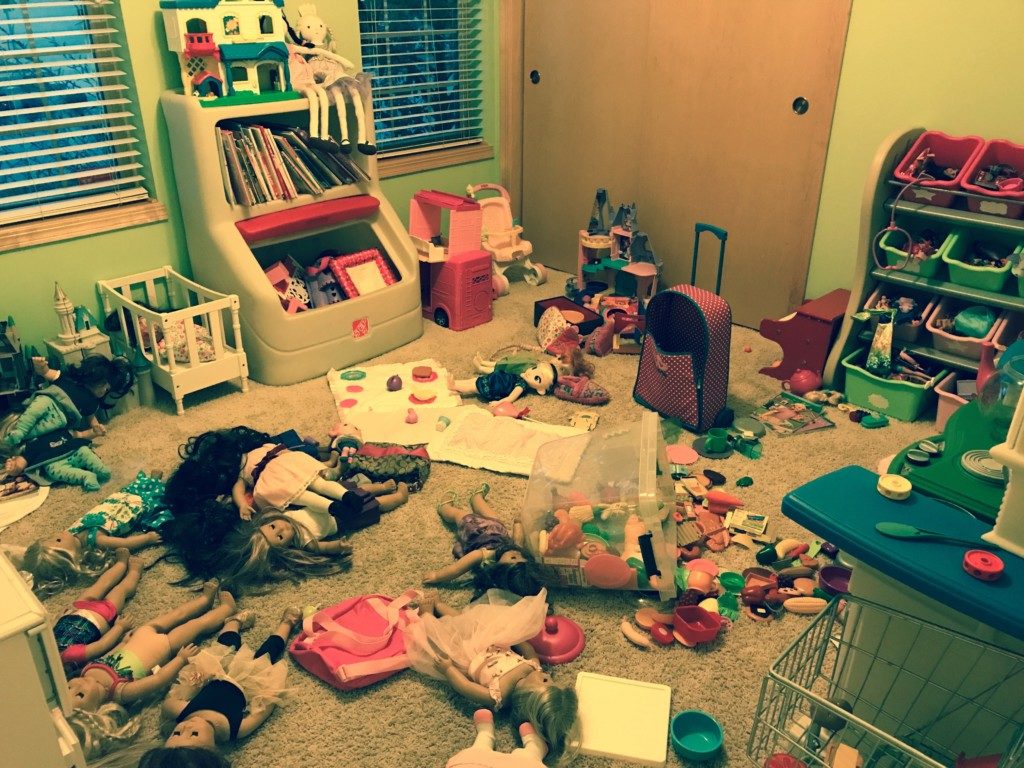Let’s talk about one of the weirdest universal truths of parenthood: kid math. I am not talking about some new addition strategy your elementary schooler has to teach you so you can help them with their homework. Although, believe me, I have been there. It’s actually kind of amazing to have your nine-year-old open their math notebook and show you a thing or two about friendly numbers. No, the kid math I am talking about is the magically balanced equation you get by adding another child—a neighbor, a cousin, a friend, a classmate—to the mix.
For some reason, inviting another kid over actually makes your life easier.
I know what you’re thinking: How can this be possible? Kids are hard to take care of—they’re like pets with really complicated needs. How can another one make things in my house run more smoothly? Do you put them all in giant plastic hamster balls or something? To which I reply, no, um, I don’t, but could you say more about those?
Honestly, I have no idea why it works. I just know that many whiny afternoons have been resurrected at my house by simply inviting another kid—or sometimes even 2—over to play.
Rules of kid math:
- You can’t just keep piling on kids and expect more and more good results. This is not an exponential equation. One or two kids makes things more harmonious, but more than 2 can start to get a little rowdier than you might want to deal with on a normal day. And when I say rowdy, know that I have 3 boys (11, 9, and 6) AND a rough and tumble girl who’s 5. I am no stranger to rowdy.
- It doesn’t work for kids younger than preschool age. Borrowing someone’s baby will not smooth things over with your toddlers, for example. I tried that when my nephew was an infant, and my then-toddler almost smote him with the jealous fire streaming out of her eyes. I mean, it’s nice of you to keep an extra baby or toddler around so its parent can have a break, but tiny kids generally don’t count for kid math.
- Pick your most problematic kid—that’s the one to soothe with a playdate. For example, my fourth-grader is exceptionally crabby after school and is in no mood to deal with the demands of his kindergarten brother, who worships the ground he walks on. When another fourth grader joins us for a couple of hours before dinner, our house is harmonious. Part of this is the novelty of someone else to play with. Part of it is that I put down my library book and engage the younger kids to give the older ones some space, instead of just shooing everyone away with the vague and always ineffective “Go play.”
- It makes your normal routine more fun. Maybe it’s because I know when another kid is here I can’t start screaming like the shrew that I truly am, but having other kids over reminds me to use my nice words as much as it reminds the kids—you know?
- It makes you an all-round better parent. When my oldest was in elementary school, he came home from a friend’s house to tell me that his friend’s mom said their brains were too big for screens, so they played tag in the basement instead of video games. WHAT A BRILLIANT LINE. Not only have I been using it ever since, but I have instituted my own screen-free playdate guidelines. Yes, the kids make more of a mess (screens are the neatest, quietest toys, after all), but then when the friends go home, the TV babysitter can drop by guilt-free, and I can extend the day’s harmony even further.
- It involves carrying as well as borrowing. I mean, sure, the really crazy thing about kid math is that more kids equals less work, but sometimes fewer kids equals less work, too. Once you have had a kid or two over to play, your kid starts getting invitations to play other places, and this is magical in its own right.
- It even works on the go. Once kids are able to use booster seats, they make a fun addition to any errand or germ-infested play place. Getting some hot chocolate and running a few errands? Bring a friend. Going to a trampoline park, laser tag place, bounce house zone, or open gym? Bring a friend. Picnic in the park? Splash pad? Museum? Zoo? All more fun with more kids.
I don’t know why kid math works, but it does. More kids means less fighting, less boredom and, usually, ZERO tantrums at home or even at the boring grocery store.













